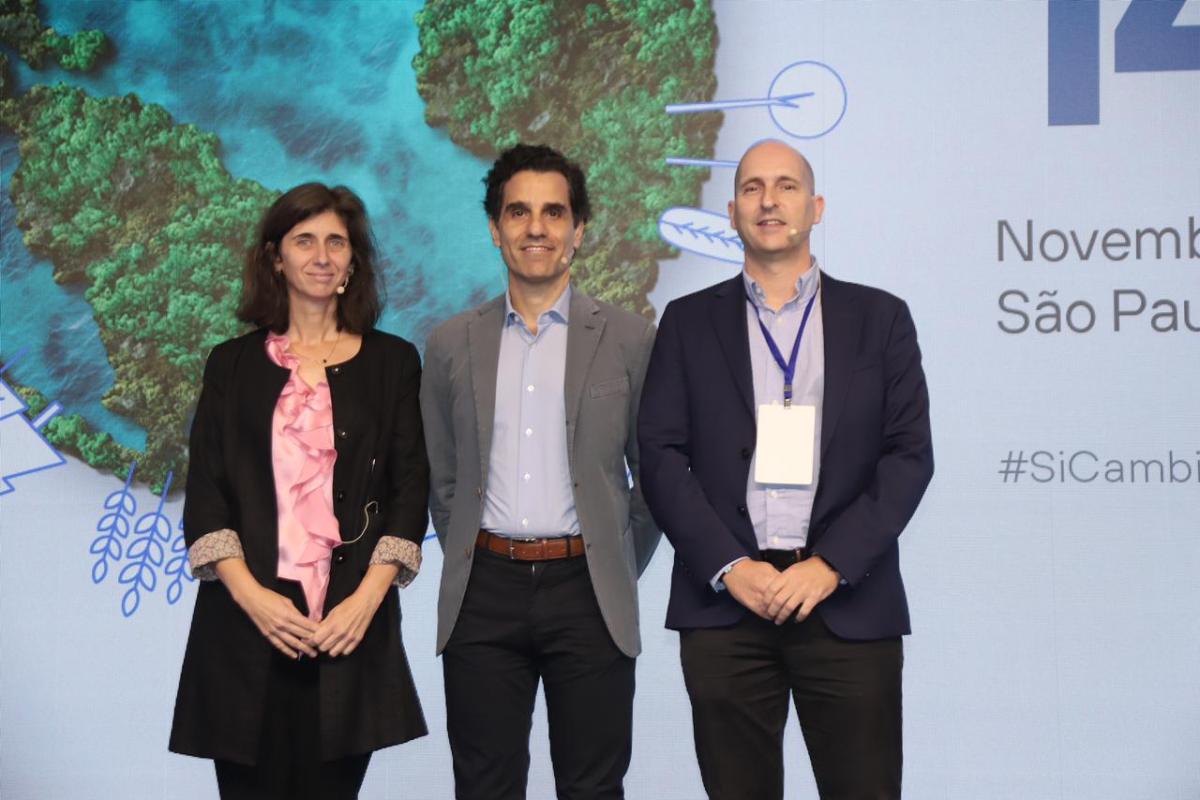Telefónica announced today, during the opening of the 14th Global Workshop on Energy and Climate Change held in Brazil, the goal of achieving a 90% reduction in its global operational emissions (scope 1 and 2), and a 56% reduction in its value chain emissions, just when the 2030 Agenda for Sustainable Development will be met.
The operator is ahead of schedule, having achieved an 80% reduction by 2022, eight years ahead of schedule. This commitment will allow it to reach net zero emissions by 2040, including its value chain.
Maya Ormazabal, Telefónica’s Director of Environment and Human Rights, said: “It’s important to accelerate because the climate crisis is urgent and has an impact on many matters. That is why we are ambitious with our targets and want to go beyond the Paris Agreement. We are committed to reaching net zero emissions by 2040 across the value chain, as well as neutralising emissions from our main operations from 2025. This is possible thanks to our company-wide Climate Action Plan, the deployment of more efficient networks such as fibre and 5G, the promotion of renewable energy, and the reduction of emissions from fuels and refrigerant gases”.
In relation to Telefónica Brazil, Joanes Ribas, Sustainability Director at Vivo, highlights that the company has reduced its own emissions by 88% in the last seven years, thanks to the use of 100% renewable energy and biofuels in its operations, in addition to efficiency and operational improvement programmes. “This reinforces the coherence of Vivo’s initiatives in the face of its main climate challenges,” she said. In Brazil, the company offsets all its residual direct emissions with conservation projects in the Amazon rainforest. To achieve the global challenge of zero net emissions by 2040, the company is working closely with its value chain, working with its 125 most emissions-intensive suppliers to make their inventories and take on their own environmental commitments”.
On the other hand, the Telefónica Group has managed to reduce energy consumption by 7.2% in 2022 compared to 2015, even though the traffic managed by its networks has increased 7.4 times. To achieve this, the implementation of energy efficiency projects and having 82% of global electricity consumption from renewable sources, 100% in Brazil, Europe, Peru and Chile, have been decisive.
Telefónica’s 14th Global Energy and Climate Change Workshop, which lasted three days and was attended by more than 250 participants, is the annual meeting point for the leaders of the company’s energy transformation and the main collaborating companies, with innovation and digitalisation as the way to protect the planet, reduce energy consumption and reduce the global carbon footprint.
Climate Action Plan
Telefónica’s commitment to the environment is a fundamental and transversal pillar of the Group. Indeed, Telefónica has had a Climate Change Office for more than 16 years and has managed to decouple its growth from the emissions generated by its operation. In fact, in seven years the Company has reduced all its emissions by 51%, specifically 80% for scopes 1 + 2 (operational) and 32% for scope 3 (value chain).
To ensure that the company meets its short, medium and long-term targets, Telefónica has a Climate Action Plan, approved by the Board of Directors, which sets out the targets and measures, backed by science, to support its transition to a low-carbon economy.
This plan enables Telefónica to be more efficient and resilient and to take advantage of the opportunities of a decarbonised economy. The company is aware of its role as a driver of change in the economy and in the societies in which it operates, as green and digital transitions go hand in hand, so it supports its customers in their own decarbonisation goals with connectivity and digital solutions.
